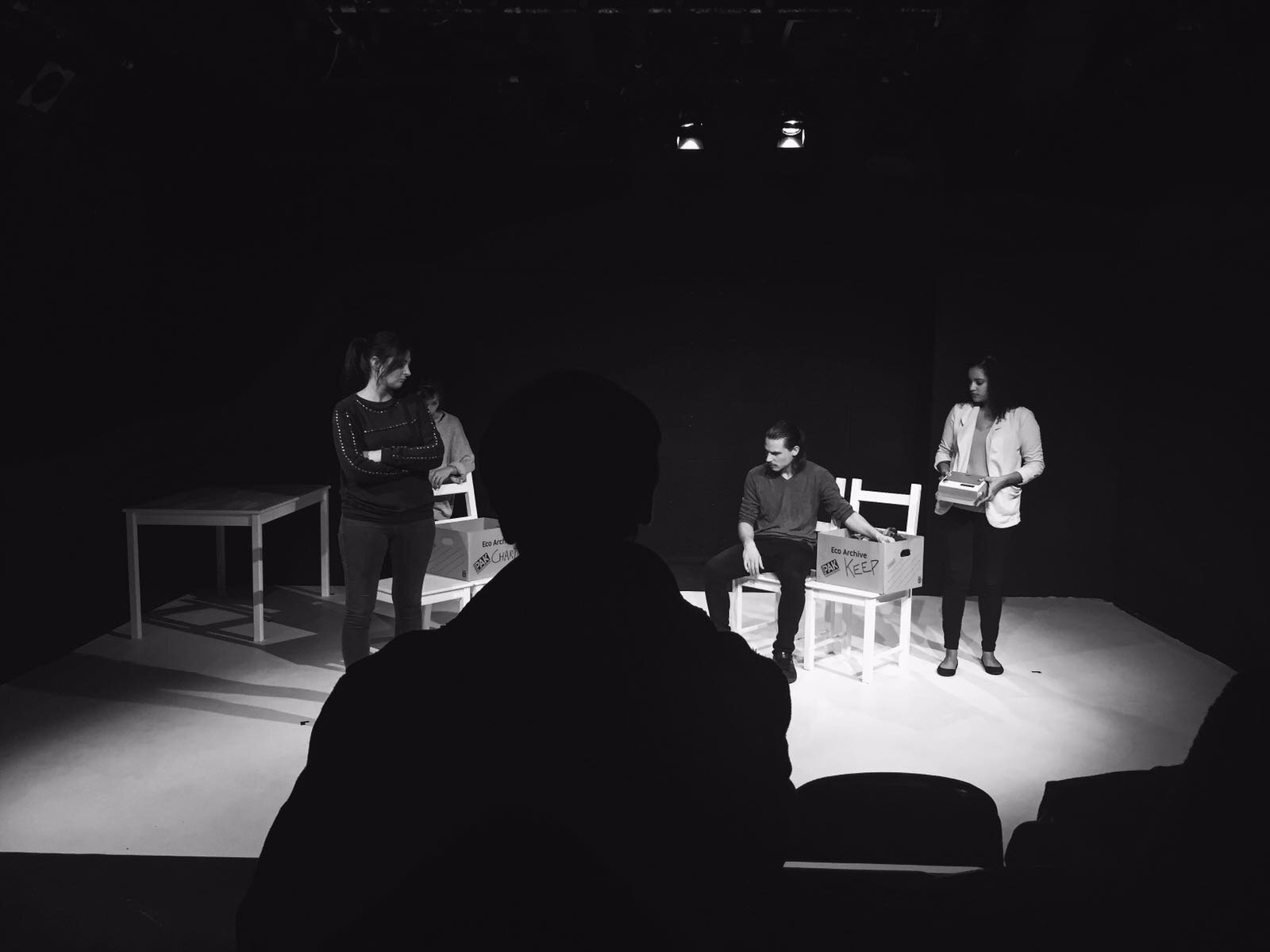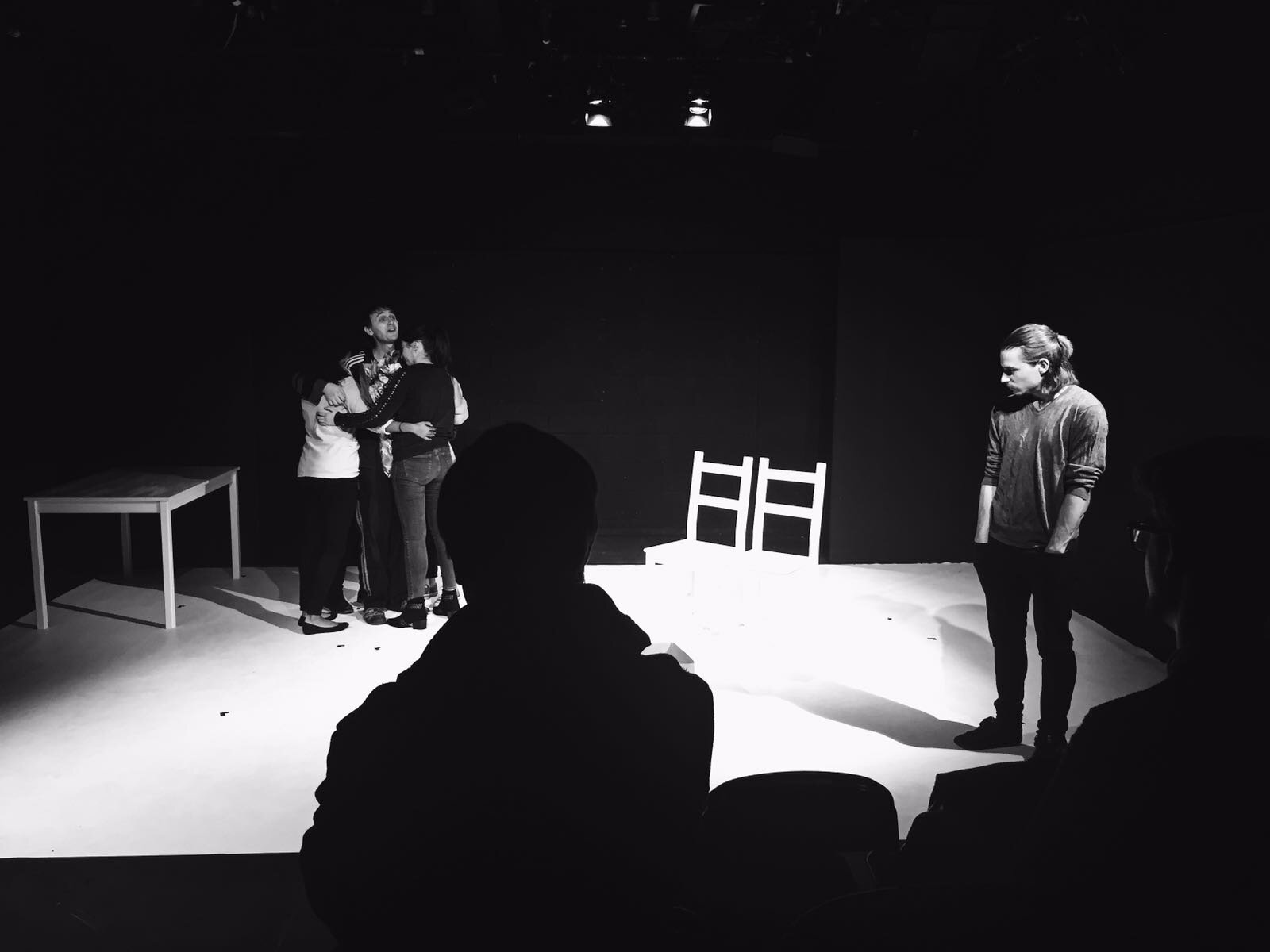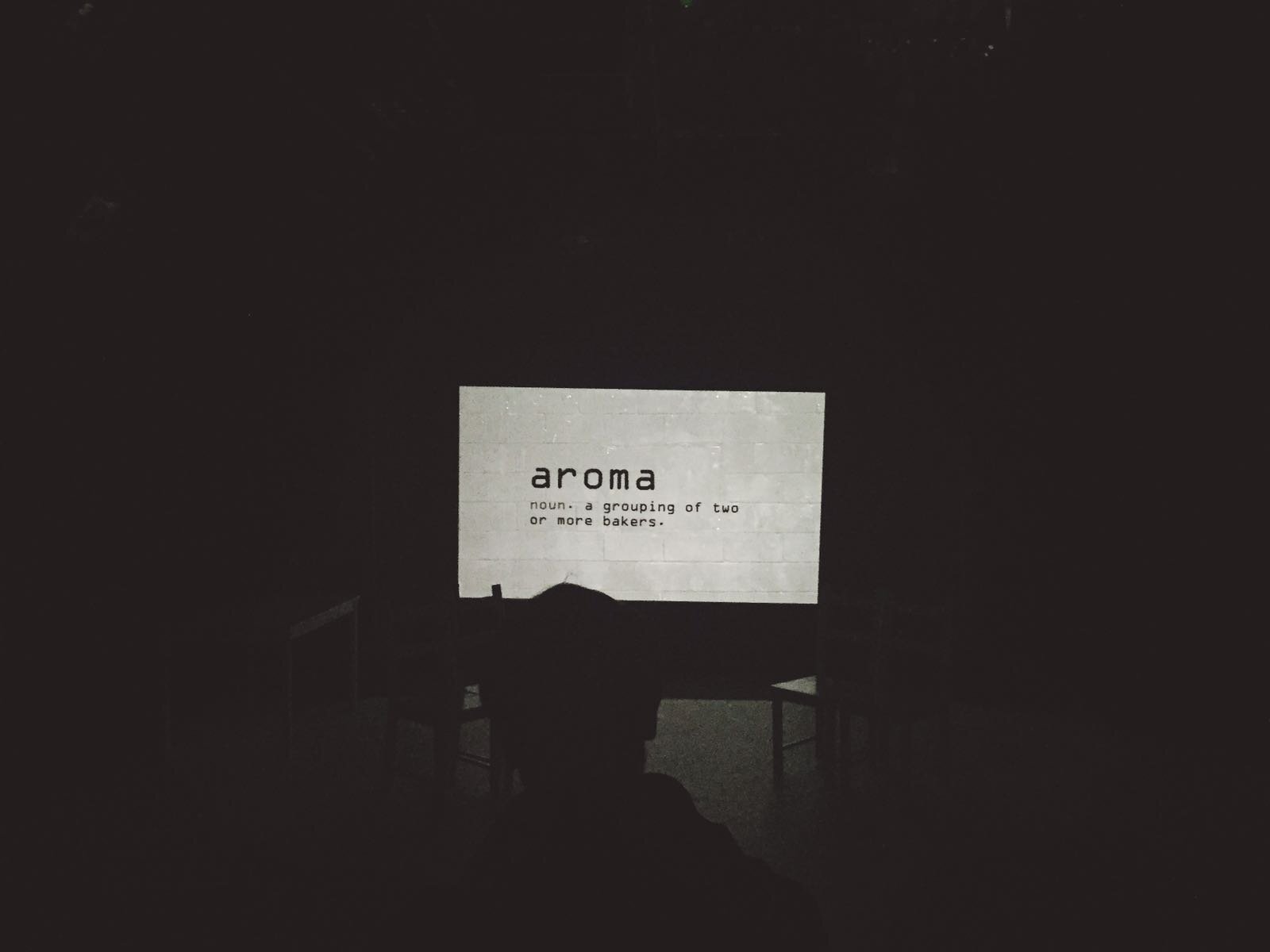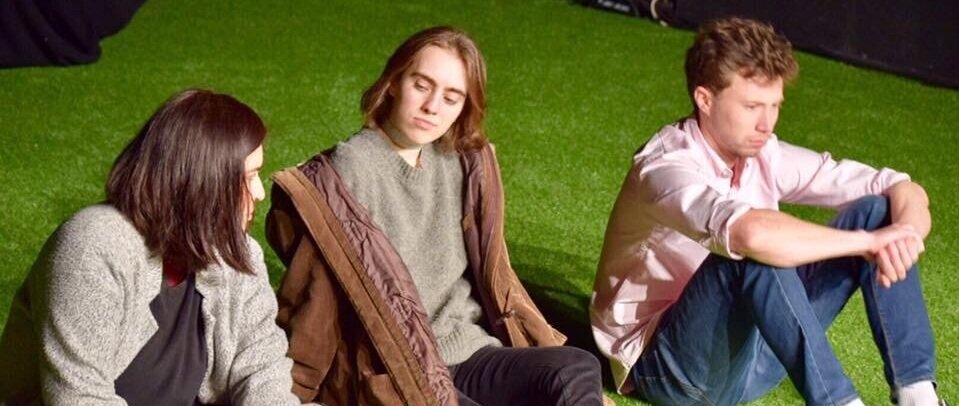
Aroma
How It Started
I answered a call for writers from The Pensive Federation for their next show, The Collective Project.
The Pensive Federation is a London theatre company “who have a shared aspiration in theatre which reflects people like you, situations you may have faced and reflective of the ordinary world around you; the magic in the mundane, the extraordinary in the everyday. We strive to create accessible work that examines the hopes, fears and dreams that live in all of us; the need for a connection with those around us, the instinct to love and the desire to be loved, to be seen in the world and acknowledged for the person you are and not the labels you wear.”
The Collective Project develops 8 new plays in just 12 days with just 12 actors, 8 writers and one great director supported by a great assistant. The 12 actors are split into two groups of six and, incredibly, those actors learn their parts for four plays.
In their own words, the Collective Project examines “group dynamics and team hierarchies, the role of the individual and what it’s like to be in a collective.”
The Process
It all starts with a workshop in central London with all the writers and actors. No one yet knows they are in and the focus initially is on getting to know each other in fun party games and warm up exercises. Later, the title of the eight plays are revealed to be collective nouns. For example, GIVE examples. I choose Aroma as it’s one that brings up associations of things more than it being a collection of bakers (who knew?!).
From then I have just 5 days to generate ideas, develop it, write and rewrite a 12 page script. I note down some initial ideas but before I go further I meet my six actors in a three-hour workshop, which I am allowed to lead for a part of it. After some great warm up games dealing with smells and associations, I get to decide what to do. Rather than reveal some of my ideas, I choose to chat to the actors about themselves. I’ll cover in a blog the questions, but it was really useful to see how the actors see themselves, and the characters they want to play but never have. The latter is really useful to engage actors in the process and know parts have been written to help them show what they can do.
It’s an idea I took from Elia Kazan, who says how he would cast to “type” requiring that the role be within the emotional and imaginative range of the performer:
"You have to start from the actor, and you have to find out where the part is alive for him. Somewhere within them the part must exist. You've got to find out before you cast them that the element that you need in the performance is there."
So that’s what I did. The session turns into a therapy session where we talk about loss and our associations with smells of people no longer in our lives. I record it all and listen back to it over a hurried few days of writing, sending it off to Serena and Neil for notes, and rewriting.
A story starts to form from all the responses from the actors as I cast them in roles they desired and relationships between the characters begin to form based on what the actors tell me about themselves and how they have behaved in some of the warm up exercises. An example, is Paul Thomas who tells me he always wants to play more masculine roles but is never cast as this. I take this and cast him as Bear, a guy’s guy but Paul’s lovely nature just oozes through so immediately you get this sense of duality in the character.
When I finish we meet again with all the other writers and listen to all of them. It’s great to hear your words being performed after only a short time of writing them and gives me confidence of writing and sending work out.
The Story
An estranged family and friends come together to clear out the possessions of the difficult recently deceased Uncle Richard.
My own Uncle Richard had recently died and I was interested in how we remember people and the associations with have, and how smell plays an important part for our memories.
Reviews
“For me, the two most successful pieces, Rob Green’s “Aroma” and Andy Curtis’s “Huddle”, resonated best from being a tight slice of life dramas with vivid characterisation and a good ear for social tension.
...deftly paints a picture of the play’s structuring absence – the dead Dickie – and manages to say much about duty, loyalty and power.”
-- View From the Cheap Seats
“the idea of how closely memory is linked to smell is covered well in Rob Greens' Aroma, with an especially funny performance by Paul Thomas”
-- View From the Gods




Overcast
How it started.
The Pensive Federation approached me. I found out I was thrown in the deep end with writing my play for The Collective Project as Pensive Federation tend to start most new writers Significant Other and then go on to The Collective Project. I was doing it the other way around. It felt great to be invited back to write for Significant Other.
The Significant Other Festival is their annual festival of 11, 10 minute plays created in just 10 days. This time instead of six actors to write for I have just three actors.
The Process
The process begins with another workshop starting with fun warm up exercises for the actors and writers to join in. There it is revealed the titles of the plays are weather conditions and they are already assigned. Mine is overcast. Another difference is all the plays are set on a large patch of artificial grass and we re provided with an array of props we can select from.
This time I get to meet my actors, Christi Van Clarke, Hanna Lucas, and Jamie Coleman, in the workshop and given something like 20 minutes to share ideas with them. I know what worked before so I go for it, and quickly interview these three young talented actors as quick as I can. Somehow I manage to ask most of the important questions and I tell them I’ll write a story that suits their characteristics and also allows them to stretch themselves as actors.
At home, I listen back to my interview with the actors. There’s some good stuff there but it’s harder to develop a story. I just have two ideas to send a draft but before I can start writing I need to believe and feel for the idea. I had to think long and hard about my actors, their dynamic and their characters, and the roles that would challenge them. The idea that eventually surfaces is a combination of the characteristics, dynamics and personal stories we share. I run out of time but I send an incomplete draft and fill out the rest of the idea in an email to the directors.
The great thing with this process is that you share your work quickly, get feedback very quickly, and with a tight deadline you just hammer through drafts. This makes it easier to see the improvements and make adjustments to work quicker. The story turns from brash to funny but meaningful. It also makes you stick to your instinct to keep certain ideas but to also really reflect on their notes if more than one person has the same note.
In about five days later, we’re all back in a room and I get to hear my play read through with the actors. It’s exciting and nerve racking hearing your work out-loud but the rest of the groups laugh and I think I may have achieved what I wanted to do. The rest goes to a talented director and I accompany the rehearsals. There is something beautiful about seeing your work being performed and seeing the mechanics of it coming together and being able to share advice on characters and timing.
The Story.
On an overcast day, one jealous friend and her bored cousin attempt to prove Warren's a cheating scumbag.
Reviews.
“Overcast by Rob Greens had me in a combination of laughter and deep thought.”
-- LondonTheatre1.com
“...the most important message of this play is the pain inflicted via social media, as well as the complexities it brings to modern day romance.”
-- Savage


